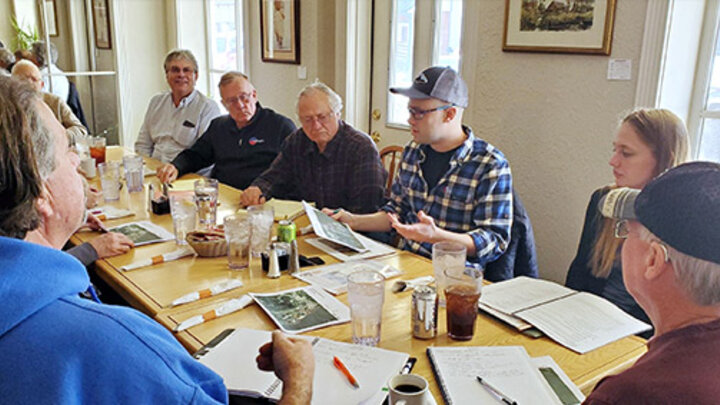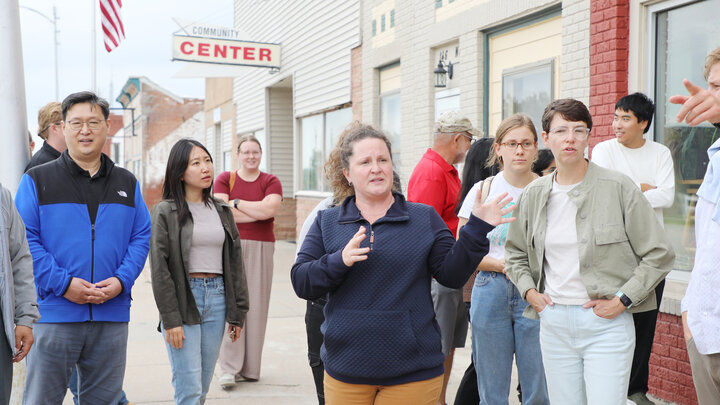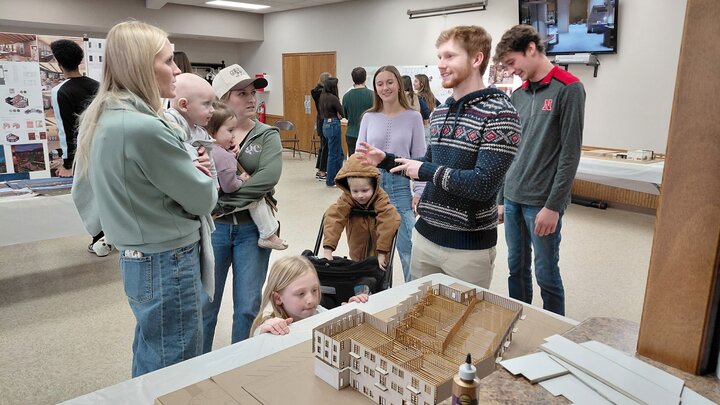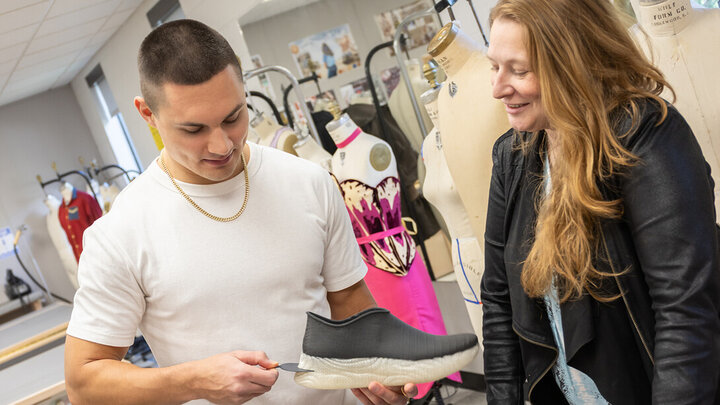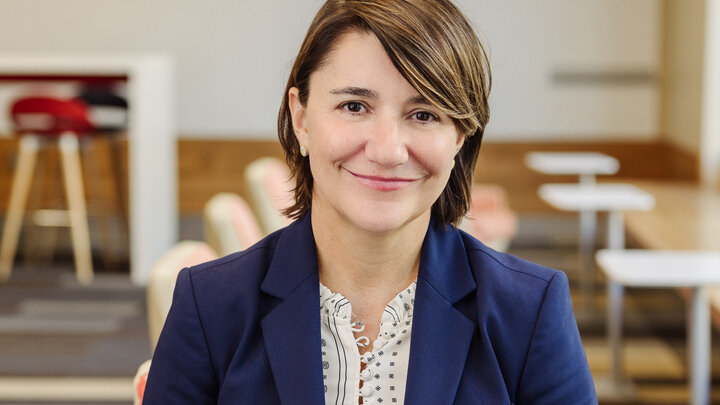Seventy-Five percent of the counties in Nebraska issued emergency declarations as a result of the devastating 2019 floods with a reported $1.3 billion in losses according to National Public Radio. University of Nebraska Extension and its university partners have been a driving force in these community-based recovery efforts.
This past year Brownville, Nebraska’s community leaders approached UNL’s Extension and the Community and Regional Planning (CRP) Program for assistance with flood recovery, mitigation and planning. The village sustained extensive flooding after the Missouri River overtopped and breached several levees following heavy rain and upstream snowmelt. Over a year out from the disaster, this town like many others, is still picking up the pieces. While the village’s buildings remained mostly intact, the road infrastructure and riverfront area were heavily damaged and still in need of repair, causing further long-term, economic disadvantages for the small tourism town of 126 people.
Among the tourism structures that sustained heavy damage was the Captain Meriwether Lewis Dredge Museum which is also a U.S. National Historic Landmark and the Brownville Riverside Park which borne infrastructure and landscaping damages including torn up, cracked and raised sidewalks and trails that were rendered unusable.
Assisting with the project this spring semester, UNL Extension enlisted the help of Master of Community and Regional Planning student Anna Headlee and Master of Applied Science student Roland Schwichtenberg with serviceship positions. The serviceships were designed to support the community in the flood recovery planning process and the mitigation of further damage which includes an analysis report of their findings and recommendations.
Collaborations like this are great learning opportunities for students and the community.
“Having a real hands-on experience was an amazing opportunity to see what it means to really be a planner,” said Headlee. “This experience helps me determine what areas of planning I may be most interested in, and shows me the importance of forming a vast range of connections and partnerships.”
“These community based, serviceship projects give our students real-world leadership experience, coordinating efforts, building collaborations and galvanizing people,” said College of Architecture’s CRP Professor Zhenghong Tang. “These are all skills that prepare our students to be formative leaders as they plan tomorrow’s communities.”
Honing their leaderships skills, Headlee and Schwichtenberg facilitated community meetings with stakeholders including Brownville residents, local officials and business owners. After listening and engaging in meaningful dialog, the students were able to put a plan in motion based on a needs assessment. One thing became apparent to the UNL team, connections to additional resources and agencies was going to be an imperative part of the process.
Through additional meetings, interviews and Zoom conference calls, Headlee and Schwichtenberg made inroads with other agencies for potential involvement and met with technical experts such as the State Historic Preservation Offices and Southeast Nebraska Economic Development District exploring their recommendations for the project. Each student also had the opportunity to utilize their technical skills, Headlee created and modified numerous elevation, flood zoning and watershed maps utilizing GIS software and made a floodplain risk assessment, all important tools for flood recovery analyzation and planning.
At the end of the semester, the students were able to collect valuable data for funding applications and assess which parts of the community needed the most attention and which partners needed to be involved for redevelopment efforts. While the purpose of this project wasn’t to create the redevelopment plan for Brownville stakeholders, the students did present recommendations for the planning process, instructions on forming a planning committee, best practices for successful planning and suggestions for mitigation and flood prevention.
With the UNL team’s recommendations, the Brownville steering committee is now able to start the planning process, focusing on landscape redevelopment for Brownville’s Riverside Park and restoring the dredge boat, both contributing economic drivers for the community.
“This was a really nicely done and amazing project! It’s a true example of how we can use the expertise of students for the benefit of the state,” said Kathleen Lodl associate dean/4-H Program Administrator, UNL Extension.
“The UNL team made a tremendous contribution, and we are grateful for Roland and Anna’s assistance with our EDA application. The Village Board would never have taken the actions they did without the resources they provided,” said John Lauber, chairman of the Brownville Steering Committee. “We owe them a debt of gratitude.”
